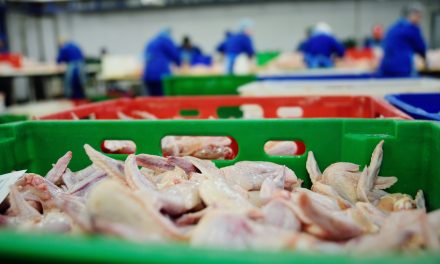If you live in Florida and want to pick some saw palmetto berries to sell at the farmer’s market, listen up. You now must have a permit to pick them.
It is now a misdemeanor to harvest the berries without a permit, even on your own land, if you plan to sell or transport or them.
The decision came last August after the state Endangered Plant Advisory Council added the plant to the Department of Agriculture’s commercially exploited plant list, which, defined by state law are:
..species native to the state which are subject to being removed in significant numbers from native habitats in the state and sold or transported for sale.1
RELATED STORY:
The new state law hopes to combat pickers who trespass on private property to pick the berries. Palmetto berry extracts have been used for low sperm count, low sex drive, hair loss, bronchitis, diabetes, inflammation, and migraines. The berries are also a popular and effective natural remedy for prostate issues. According to the Mayo Clinic’s consumer web pages:
More than two million American men use saw palmetto for enlarged prostate, and it is commonly recommended as an alternative treatment by the U.S. Food and Drug Administration.1
Highlands County Sheriff’s Office spokesperson Richard Dressel said the deputies routinely warn pickers and tell them not to trespass to pick berries, adding:
We typically get a lot of calls about people picking berries, either from people upset they are trespassing to people who see a person completely covered up. They usually have long sleeves and often wear bandanas to prevent being all scratched up, walking through the neighborhood, which makes them concerned.1
RELATED STORY:
Picking the berries without a permit will is a first-degree misdemeanor, and violators could face up to a year in jail.
Under the new law, those caught picking without a permit will be charged with a first-degree misdemeanor and could face up to a year in jail.
The new rules, which took effect last summer, state that:
- Any landowner harvesting saw palmetto berries for sale must obtain a Native Plant Harvesting Permit from the FDACS Division of Plant Industry. The permit application must be submitted at least 14 days before the intended date of the harvest. Multiple properties can be listed on one application.
- Anyone under a contract to harvest the berries must have written permission from the landowner and must also have a Native Plant Harvesting Permit. The permit application must be submitted at least 14 days before the intended date of the harvest. Multiple people can be listed on one application.
- Anyone entering property other than their own to harvest berries must have written permission from the landowner.
- Anyone transporting for sale, selling or offering for sale saw palmetto berries from their own property must also have a Native Plant Harvesting Permit. The permit application must be submitted at least 14 days before the intended date of the harvest.
- Anyone transporting, processing or purchasing berries that are not from their property does not need a permit but must have the written permission of the landowner in their immediate possession at all times.
- Anyone harvesting on state or any other public land must also obtain written permission.
The permit must be in your immediate possession at all times while harvesting berries.1
RELATED STORY:
Large landowners in Southwest Florida have made deals with palmetto berry harvesters where the two parties usually split the profits. However, on remote parcels of land, unauthorized, and often masked, strangers have beat the harvesting crews to prime spots and picked every single one of saw palmetto berries. To make matters worse, these early-bird berry poachers often pick the berries before they’re fully ripe, which hurts their market value.
Nonetheless, smaller-scale berry pickers aren’t so fond of the new law. Scott Niebel operates the Blue Skies repacking operation in Immokalee. The company takes crops harvested in the region and packs them for sale to wholesale produce buyers. While waiting for fall and winter crops to be packed, Niebel and his son Jerry purchase saw palmetto berries from local pickers and then sell them to a broker in Georgia.
RELATED STORY:
Jerry Niebel thinks the new rules are deceptive and politically driven. He said they were introduced as a way to help promote the welfare of a commercially exploited native plant, but as soon as a developer comes along with a plan, they push the palmettos right out of the way.
The elder Niebel says the permit rules lack compassion for those with modest means who struggle to get by until the farm crops come in. Jerry Niebel added:
There’s no charge to apply for a permit. But the forms come only in English, something many pickers aren’t fluent in.1
For the record, picking saw palmetto berries on wild tracts of land is hot, dirty work. Palmetto’s saw-toothed fronds can draw blood, and the dense foliage and twisted trunks are a great cover for rodents, snakes, and many animals that crawl.
Competing with humans in the summer for the berries is the Florida black bear. Saw Palmetto berries are a primary food source for the bears, who eat them to bulk up for the mild Florida winter. Some wildlife scientists wonder whether declining saw palmetto acreage and increased real estate development are putting the hungry bears closer to homes and businesses, and would like to see the berries left alone (and not picked).
RELATED STORY:
Ray March oversees land management for Collier Enterprises in Naples, which owns approximately 50,000 acres in rural portions of Henry and Collier and counties. March says the new rules are a big improvement but is not sure how it will work out.
Twenty years ago, Saw Palmetto was named by the Florida legislature as an emerging crop. But according to agricultural economist Fritz Roka, the commercial potential for the berries has lagged well behind its original promise. Roka has a long history in research and education, and today is the director of the new Center for Agribusiness at Florida Gulf Coast University. Roka says what is needed is a complete legal infrastructure, much like there is in the citrus industry, in which berry ownership can be tracked from landowner to harvester, to shipper, to intermediaries and finally to the herbal/dietary supplement manufacturer. He added:
You can have all the rules and regulations you want. But once you sell (berries) on the streets of Immokalee, there’s no traceability. Regulations (would) control how a product is sold, so you can get full value. Right now, if even 15- to 25 percent of those berries are poached, those berries will influence the price on the market.1
The Florida Department of Agriculture says that both the application and the permit are free.
Source:












